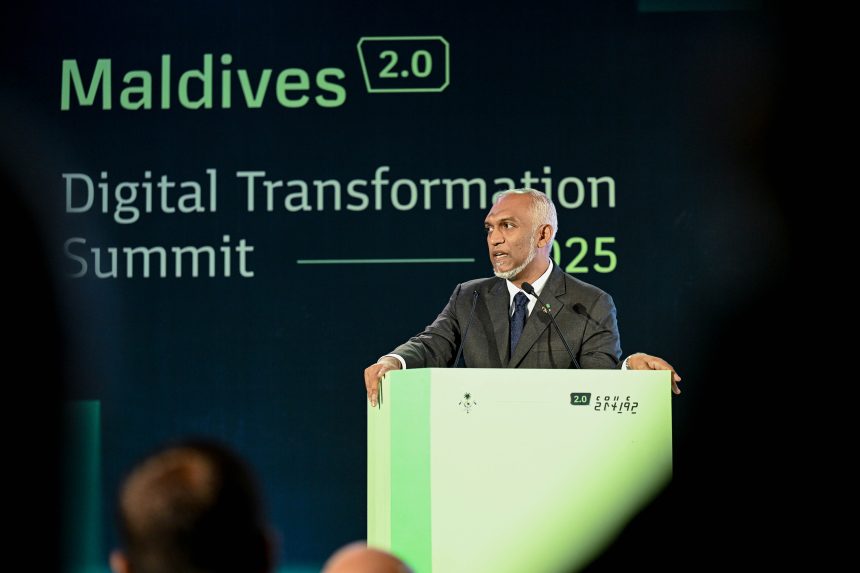In a bold move to redefine the Maldives’ future, President Dr. Mohamed Muizzu has unveiled the “Maldives 2.0” initiative—a comprehensive digital transformation strategy poised to revolutionize governance, economy, and public services across the archipelago. This ambitious plan introduces eight strategic pillars aimed at building a secure, inclusive, and innovative digital nation.
1. Unified Digital Identity for All
At the heart of Maldives 2.0 lies the implementation of a secure digital identity system, anchored by the eFaas platform and Smart ID cards. This initiative promises citizens a single, secure digital identity, facilitating seamless access to both public and private services, enhancing privacy, and reducing fraud.
2. Seamless Data Sharing and Governance
The government plans to establish an interoperable data-sharing framework, eliminating the need for citizens to resubmit documents across agencies. This move aims to promote transparency, accountability, and evidence-based policymaking, thereby improving public service accuracy and fostering data-driven innovation.
3. Fortifying Cybersecurity for National Resilience
Recognizing the importance of safeguarding digital infrastructure, the initiative emphasizes building a robust national cybersecurity architecture. This includes protecting citizens and businesses from digital threats, ensuring continuity of essential digital services, and cultivating a skilled cybersecurity workforce.
4. Modern Legal Framework for Digital Trust
To ensure trust and accountability in digital systems, the government will enact digital-era laws. These laws will provide legal clarity for digital rights and responsibilities, guarantee citizen data privacy, and facilitate secure digital commerce and innovation.
5. Establishing Secure and Sovereign Digital Infrastructure
The plan includes developing a national cloud infrastructure managed by the state, ensuring data is hosted securely within the country. This move aims to improve service reliability, scalability, and reduce foreign dependency.
6. Citizen-Centric E-Government Services
Maldives 2.0 envisions integrating all government services into a single platform, providing one-stop access to public services. This approach aims to increase digital inclusion, offer faster turnaround times, and enhance feedback systems.
7. Digital Transformation Across Key Sectors
The initiative targets end-to-end digitalization in vital sectors such as education, health, tourism, justice, trade, and the environment. This transformation is expected to improve access to essential services and foster sector-specific innovations.
8. Fostering ICT Ecosystem Development and Innovation
To unlock the digital economy’s potential, the government plans to support startups, research, and emerging technologies. This will create opportunities for youth and digital entrepreneurs, stimulate the growth of the local tech sector, and generate new jobs, enhancing regional competitiveness.
President Muizzu’s vision for a digital-first Maldives is not just about technology; it’s about empowering every citizen, every island, and every generation to come. By embracing these eight pillars, the Maldives is set to become a beacon of digital innovation and inclusivity in the region.
For more information, visit the official Maldives 2.0 portal: https://digital.gov.mv/




